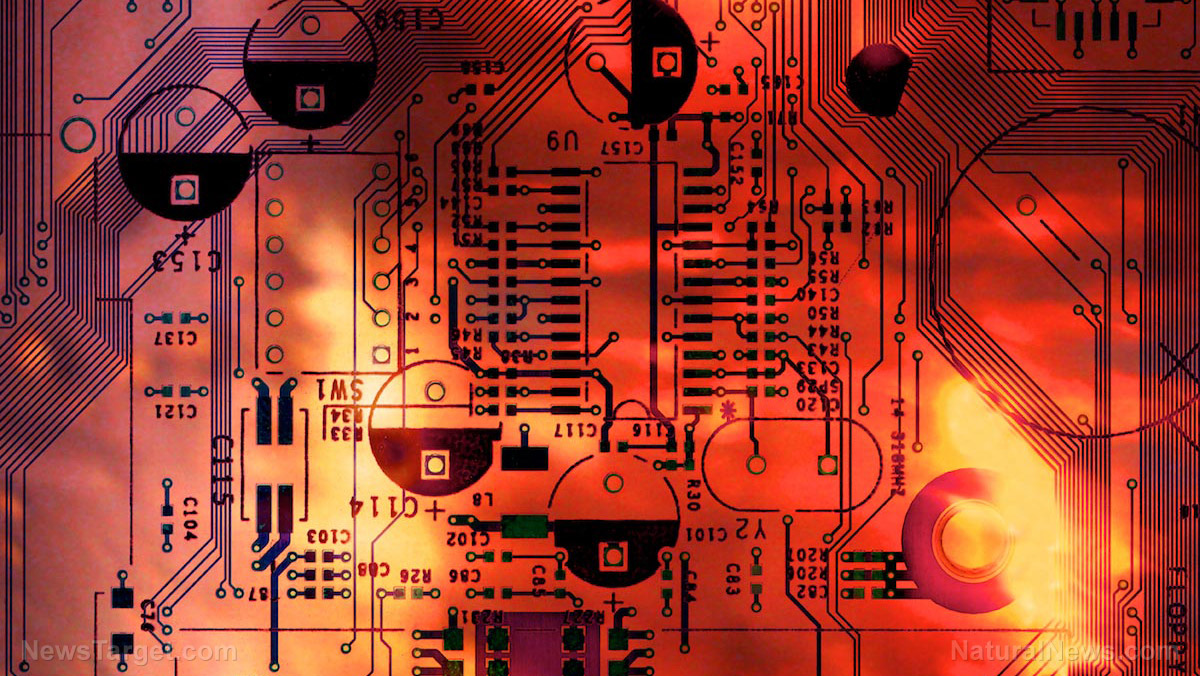Closure of U.K. microchip factory puts British defense projects in limbo
The British Armed Forces is preparing for possible supply interruptions after one of the last surviving microchip plants in the United Kingdom lost its contract with Big Tech company Apple and stopped taking new orders.
The United States-based company Coherent currently has a production facility in Newton Aycliffe in northern England. Its clients include the Italian defense company Leonardo, which manufactures radar equipment, electronic warfare systems and helicopters for the British military.
The Daily Telegraph reported that “the factory’s closure threatens to reduce the U.K.’s domestic capabilities,” and could make Leonardo turn elsewhere for supplies. While Coherent “is not thought to have any outstanding orders” with Leonardo, sources told the newspaper that the factory may be needed in the future for some unspecified projects.
The Newton Aycliffe plant is one of just two in the U.K. that can commercially create gallium arsenide semiconductors, the newspaper mentioned.
It has made chips for British military hardware, like the radar power amplifiers in Eurofighter Typhoon fighter jets. Leonardo makes about 60 percent of the avionics for the Typhoon.
Coherent developed its business making semiconductors for Apple. Early this year, however, the U.S. tech giant declared it would make changes to the FaceID feature in the forthcoming iPhone model, meaning that Coherent’s chips were no longer required.
With Apple being the factory’s primary client, the cancellation could mean the plant being closed down – dealing another major blow to the British semiconductor industry.
Coherent has already dismissed hundreds of workers at Newton Aycliffe
Coherent stated in May that it had ceased deliveries to a “major customer” at the end of the 2023 fiscal year. The company has already dismissed hundreds of workers at Newton Aycliffe and may wind up having to sell the plant if the slowdown in its business continues.
“Leonardo is aware of the current situation and is working with all of our stakeholders to deliver a resilient supply chain,” the company’s U.K. spokesperson said.
The British Defense Ministry stated that its staff “continually monitor” military supply chains, “including in the semiconductor sector,” but did not particularly comment on the Coherent situation.
An industry source told the Telegraph that the company still hopes a “white knight” investor could save the Newton Aycliffe plant.
The Telegraph initially disclosed in May that the site’s future was in doubt, and that it was experiencing a strategic review that could lead to the plant being sold.
Coherent said in company accounts that it had released a last-time-buy notice to other customers. It stated that the decision by Apple to stop using the company as a supplier “places the ongoing viability of the business in doubt.”
“A strategic review of the business is currently being undertaken with potential new technologies and/or sale of the business as options under consideration,” the accounts added.
Coherent’s uncertain future is part of the British semiconductor industry’s wider decline. The country has ended up in the losing side over the past few years of a global shift in chip manufacturing to Asia.
Along with Volex and Wolfson Microelectronics, other corporations experienced share price drops after losing contracts, leaving the U.K. perilously dependent on foreign suppliers for its semiconductors.
Follow SupplyChainWarning.com for more news about global supply chain disruptions.
Watch this short clip with TSMC Chief Scientist Philipp Wong discussing China’s growing dominance in the field of semiconductor research.
This video is from the BulgarianInsider channel on Brighteon.com.
More related stories:
Intel HALTS construction of $25B computer chip plant in Israel due to lack of supplies stemming from Red Sea blockade.
Taiwan earthquake puts global chip supply at risk as TSMC pauses production line.
China enacts export restrictions on two crucial metals amid escalating trade war with U.S.
Sources include:
RT.com
Euronews.com
Telegraph.co.uk
Brighteon.com
Read full article here


